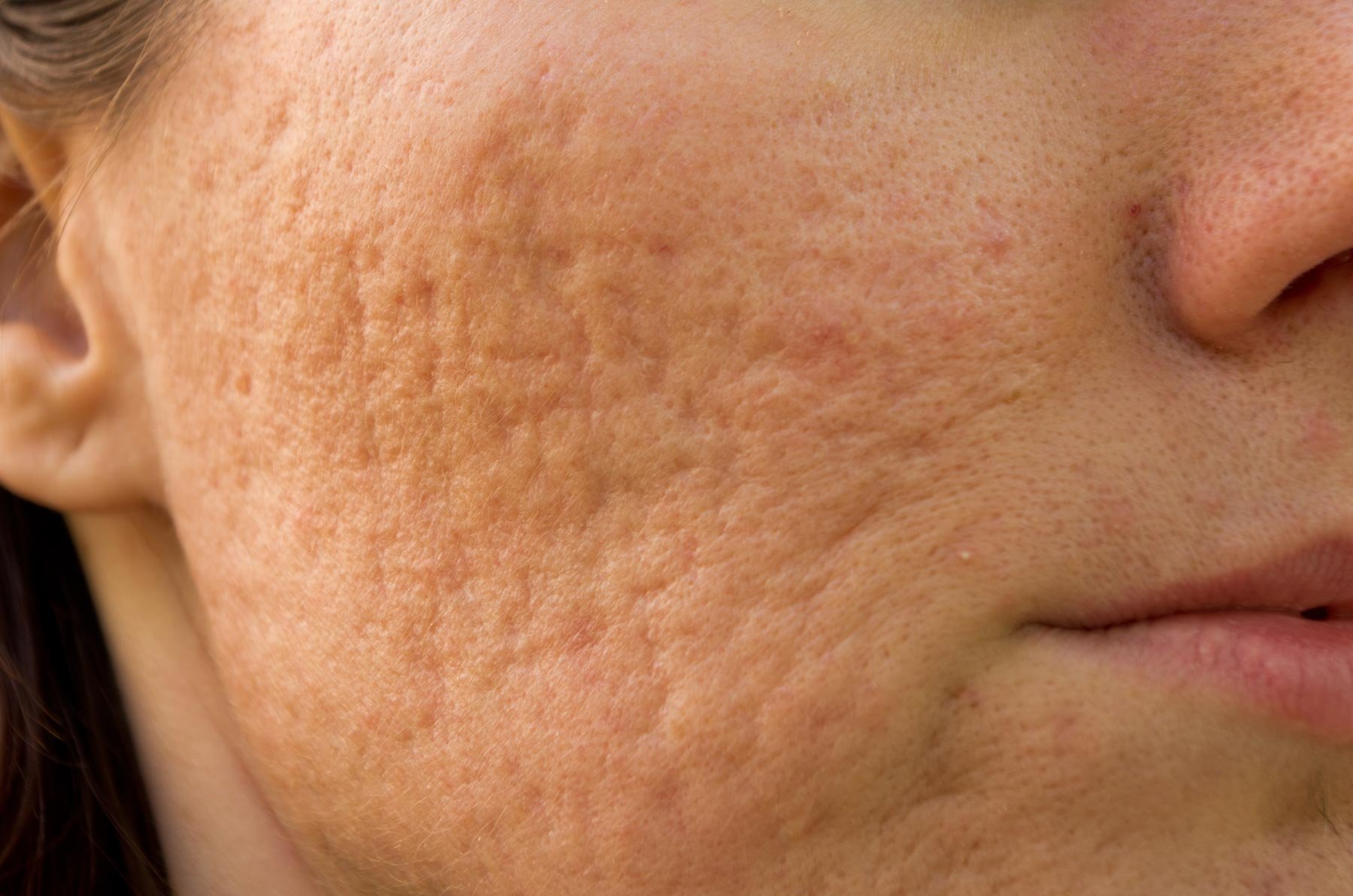
Acne Scarring
Acne scarring is a common skin concern that can affect people of all ages. It occurs when the skin's natural healing process is disrupted, leading to the formation of raised or depressed areas on the skin. These scars can range in size and severity, and can be both physically and emotionally distressing for those who have them.
There are several different types of acne scars, including:
Icepick scars: These are deep, narrow scars that extend into the skin. They are typically small in size, but can be numerous and difficult to treat.
Boxcar scars: These scars are round or oval in shape, with steep, defined edges. They can be shallow or deep, and are often found on the cheeks and temples.
Rolling scars: These scars have a wave-like appearance, and are caused by fibrous bands that pull on the skin and create a rippled effect.
Hypertrophic scars: These are raised scars that develop when too much collagen is produced during the healing process. They are often red or purple in color, and can be itchy or painful.
Keloid scars: These are raised scars that grow beyond the boundaries of the original injury. They can be large and lumpy, and are often darker in color than the surrounding skin.
The treatment of acne scarring depends on the type and severity of the scars, as well as the individual's skin type and preference. Some common treatments for acne scarring include:
Chemical peels: These treatments use a chemical solution to remove the top layer of skin, revealing smoother, healthier skin beneath. They can be used to improve the appearance of shallow scars, but may not be effective for deeper scars.
Dermal fillers: These injectable treatments can be used to fill in depressed scars, creating a smoother, more even surface.
Laser resurfacing: This treatment uses a laser to remove the top layer of skin and stimulate collagen production, helping to improve the appearance of scars.
Microneedling: This treatment involves using a device with tiny needles to create small punctures in the skin, which can stimulate collagen production and improve the appearance of scars.
Punch excision: This surgical procedure involves removing the scar and closing the wound with sutures or a skin graft.
It's important to note that no single treatment is effective for all types of acne scarring, and that multiple treatments may be necessary to achieve the desired results. It's also worth noting that some scars may be permanent, and may not respond to treatment.
If you're concerned about acne scarring, it's a good idea to speak with a dermatologist or other skin care professional. They can assess your scars and recommend the most appropriate treatment options for you.

